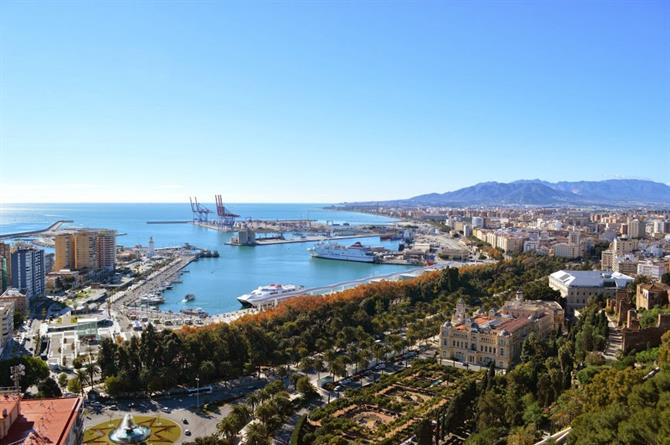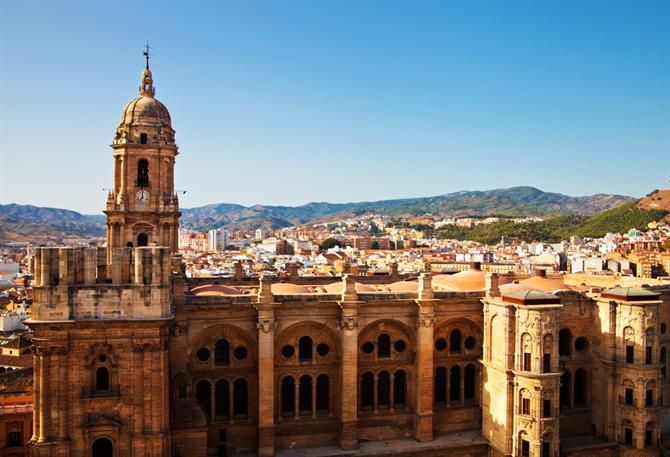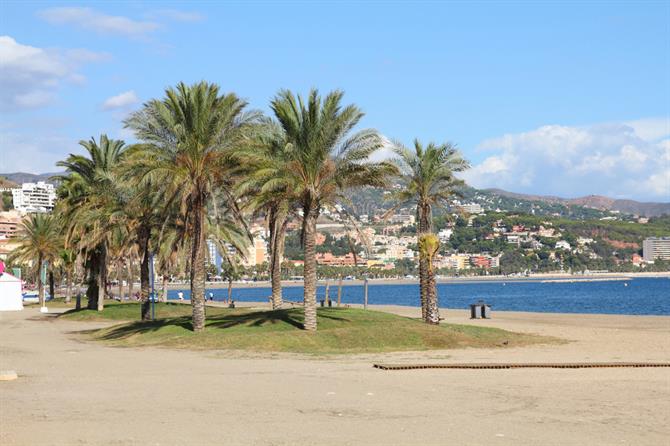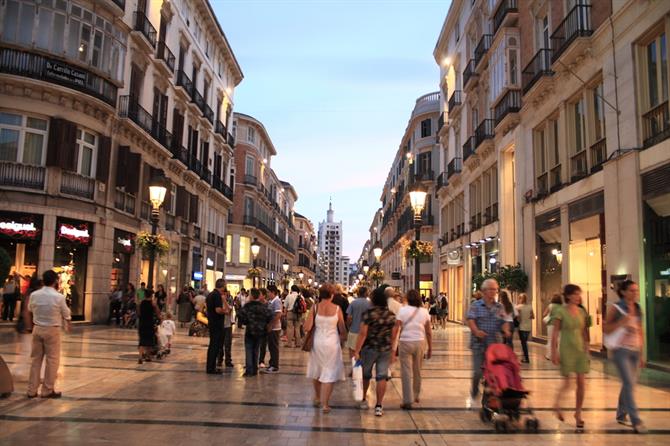
Yet Malaga City, the coastal capital of Andalusia, is a treasure trove of art, culture, gastronomy and outstanding beaches. And it’s finally getting the recognition it deserves for its eclectic lifestyle and culture. With all this in mind, what of its accessibility? Is Malaga City prepared for visitors with different capabilities? Spain-holiday.com investigated.
We chatted to Javier Hernandez Rodriguez, the director of Tourism and the Malaga Convention Bureau about Malaga’s accessible agenda.
An overview of Malaga’s ‘Accessible Agenda’
The city of Malaga has received many awards for its accessibility. The accessible agenda for Malaga falls under the responsibility of the Ministry for Accessibility and Mobility, rather than with the Ministry for Tourism. However, their objectives are united on the subject of accessibility and the departments meet periodically to discuss the resources available to the city, which compliment Malaga’s Accessible Tourism offering.
Malaga has 10 tourist routes featured in the Malaga Accessible program. These offer adapted tours of the city’s principal cultural attractions and museums, as well as taking in Malaga’s green, natural spaces. There are guided visits with sign language interpreters and braille guides; plus the tours are adapted for visitors with reduced mobility. You can find out more about the different guided tours of Malaga on the Malaga Tourism website.

Does the city provide its visitors with a guide to the level of accessibility offered within its cultural and business spaces?
A study was made of Malaga City, specifically within the city centre, identifying local points of interest that meet a good level of accessibility. It’s not just Malaga's tourist attractions that are equipped for visitors with disabilities. There exists many resources throughout the city: small businesses, shops, restaurants, bars and cafeterias, that are equipped and comply with accessibility regulations.
Visitors planning a trip to Malaga can find this information on www.malaga.eu where we list 600 accessible attractions and points of interest the city has to offer.
How accessible are Malaga’s beaches?
During high season, 15 July to 15 September, Malaga presents the ‘Enjoy the Beach’ program; when the main beaches of Playa de la Misericordia and the Playa del Dedo offer special assistance for those who need it. This includes two beach monitors from 12h-19h daily, amphibian chairs, life jackets, walking sticks, swimming aids and a hoist to transfer bathers from wheelchair to amphibian chair.
Both beaches also feature rest zones, equipped with hammocks and shaded area. There are special reserved parking spaces, an access ramp, access walkway down to the sea, accessible showers (indoor and outdoor), changing rooms and lifeguards. All Malaga’s beaches comply with the Q for quality certificate. You can find out more information about Malaga’s beaches on http://playas.malaga.eu

What about Malaga’s urban areas and transport?
Malaga is constantly working towards eliminating all of the physical barriers within the city’s boundaries. In the principal streets there are reserved parking spaces and the city’s bus service is adapted with electric ramps and space for wheelchair users. The city’s official taxi service offers a good quota of adapted taxis. Here you can find a map of disabled parking spaces and audible pedestrian traffic signals in Malaga (click on the right hand navigation links to view each subject).
Where can a visitor find more information on Accessible Malaga?
Malaga’s official website features a section called Accessible Itineraries in Malaga where visitors can browse information on the city’s accessible points of interest. The information is available in pdf format to the right of the page, although currently it’s only available in Spanish. The Tourist Department is developing a brand new website that will feature interactive elements for the city’s accessible points of interest and in which you will be able to pinpoint their locations.
When visitors arrive to Malaga, it’s recommended to visit one of the nine tourist offices located throughout the city. The main tourist office, located in the Plaza de la Marina, which receives around 230,000 visitors each year, has a team trained in sign language assistance, a Braille map illustrates Malaga’s historic city centre and magnifying glasses are available for the visually impaired.
Shopping in Malaga
In collaboration with the chamber of commerce, Malaga’s local council are constantly working to amplify the number of accessible establishments in the city. Visitors will find the majority of shops, bars and restaurants in the historic centre; it’s the most visited zone of Malaga and where 80% of the area’s businesses are accessible.

And if a visitor wants to enjoy a sports event or concert in the city?
Malaga’s main music and sports venues are accessible to people with reduced disability. The Teatro (Theatre) Cervantes and Teatro Echegaray are both adapted. In larger events there are sign interpreters and magnetic loops for the hard of hearing.
Malaga’s plans for the future to improve accessibility in the city?
To continue identifying accessible spaces and resources throughout the city, as we have done with the 580 accessible businesses we mentioned previously, and promote these as destinations in Malaga prepared for accessible tourism.
Update May 2014: Malaga City Council has announced they will be awarding businesses in Malaga City who meet Accessibility requirements. Establishments will have a plaque that identifies them as accessible and will be featured on www.malaga24h.malaga.eu
Check out our Rough Guide to Accessible Holidays in Tenerife and Barcelona - Part Three: The Rough Guide to Accessible Holidays in Spain
